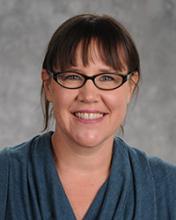Bio
Betsy DiSalvo is an Assistant Professor in the School of Interactive and founder of the Culture and Technology Lab (CAT Lab). Her research engages in the study of informal learning and the impact of cultural values on technology use and production. DiSalvo’s work has included the development of games such as the Click! Urban Adventure that encouraged middle school females interest in technology and science, and casual games to build interest in the Children’s Museum of Pittsburgh. Her project, the Glitch Game Testers, leveraged young African American males passion for gaming into an interest in computer science through authentic work and learning experiences.
Currently, the CAT Lab is exploring parents’ use of technology for informal learning. In its first stages, this research is developing an understanding of how and why parents use or don’t choose to use computers, mobile devices, and other technology for learning. We are finding differences in patterns of use based upon gender, education level and income level. Future work included design research using participatory design methods to create parent portals that encourage the use of informal learning across socio-economic divides.
Working in Maker Spaces and with art and technology the CAT Lab is exploring how maker oriented learning approaches can increase communities of learners, transfer and reflection in undergraduate computer science courses. They are also pursuing the use of microcontrollers in educational art settings that emphasis art practice and technology practice equally. Early findings suggest that the use of maker oriented learning and art practices with technology improve the motivation and broaden students’ vision of what technology can do.
The CAT Lab is also developing a community lab for computational learning in the Westside of Atlanta. The Westside neighborhoods have an impoverished educational landscape for K-12 students, yet border Georgia Tech and other higher education institutions. The community lab will consist of a computer services youth co-operative, where high school students will be trained to upgrade and fix donated surplus computer from local institution and companies, sell them in their neighborhood, and offer ongoing service and support to their customers. Exploratory computer science classes and research on learning motivation and support will be explored with in the context of the co-op.
